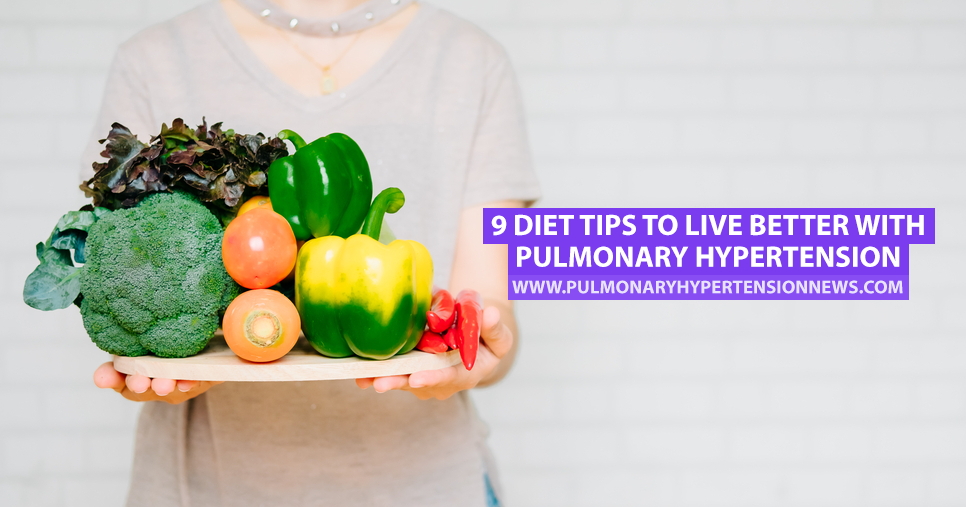9 Diet Tips to Live Better With Pulmonary Hypertension

If you have a chronic disease like pulmonary hypertension (PH), it’s important to eat a healthy and balanced diet. This will help ensure your body gets the right nutrition, you maintain a sensible weight, and your blood pressure and cholesterol levels are kept low.
Here are nine diet tips to help you improve your health with PH according to healthline.com:
1. Reduce your salt intake. Reducing the amount of salt you eat is a simple way to control your blood pressure. In addition to lessening the amount of table salt you add to your food, you should cut back on eating processed foods which are notoriously high in salt (sodium).
2. Limit fluids. Many pulmonary hypertension patients are advised against drinking more than two liters of fluids per day. Fluid retention puts more pressure on the heart.
3. Avoid caffeine and alcohol. Stimulants such as caffeine and alcohol should be avoided because they can increase blood pressure. Choose non-caffeinated and non-alcoholic drinks.
MORE: Can pulmonary hypertension be prevented?
4. Relieve nausea. Many pulmonary hypertension patients find that their medication may make them feel queasy. Eating dry toast or crackers (preferably unsalted) will help to relieve nausea.
5. Increase your iron intake. A diet low in iron has been found to aggravate PH symptoms. Choose foods that are high in iron such as red meats, dark leafy greens, mushrooms, and dried apricots.
6. Eat garlic. Garlic is great for helping keep blood pressure low. Raw garlic is best for you — and always good for adding extra flavor to your favorite dishes.
MORE: Seven tips to get you through the hot weather with pulmonary hypertension.
7. Maintain a consistent level of vitamin K. Vitamin K can affect the way blood-thinning medications work, so it’s important to keep vitamin K levels consistent.
8. Keep a food diary. A food diary will help you keep track of which foods made you feel better, and which foods made you feel worse. The diary will also serve as a quick reference tool for when your doctor or nutritionist questions what you eat.
9. Enjoy your new diet!: Embrace your dietary restrictions as a way to explore and share new and tasty recipes.
MORE: The difficulties of diagnosing pulmonary arterial hypertension
Pulmonary Hypertension News is strictly a news and information website about the disease. It does not provide medical advice, diagnosis or treatment. This content is not intended to be a substitute for professional medical advice, diagnosis, or treatment. Always seek the advice of your physician or another qualified health provider with any questions you may have regarding a medical condition. Never disregard professional medical advice or delay in seeking it because of something you have read on this website.







